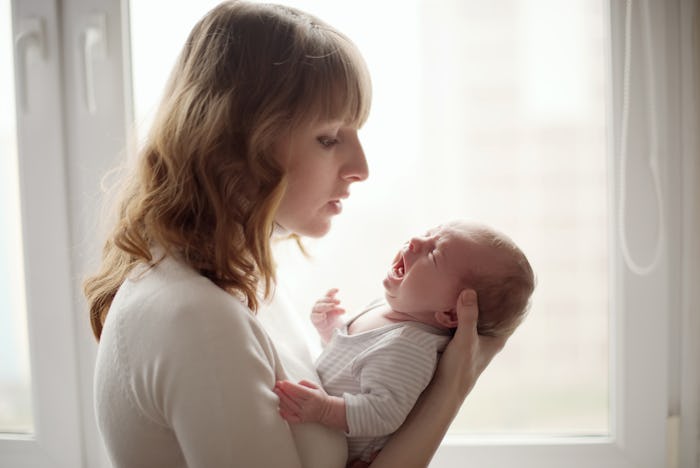It's normal to feel anxious as a new mother. The baby you were able to keep safe in your womb for nine plus months is now on the outside world, vulnerable to disease, germs, and other bad things. The resulting stress can be overwhelming even for someone who is great under pressure. But if worrying about your baby is causing disruptions in your daily routine, you may want to know the ways postpartum anxiety affects your sleep.
According to Parents, postpartum anxiety affects 10 percent of new mothers. These mothers are constantly plagued by worry about their baby's health, their own abilities to parent, and managing other household responsibilities. And as a result of their worrying, the mother is left feeling agitated, restless, and often has difficulty sleeping. These symptoms can be especially debilitating for new mothers, who are already getting less sleep due to their baby's feeding schedule.
As Baby Center mentioned, new mothers usually begin to experience the symptoms of postpartum anxiety within the first two to three weeks after giving birth, and may take a few additional weeks to reach a level that is distressing to the mother. Postpartum anxiety can affect any new mother, but according to Parenting, women with a personal or family history of anxiety are more susceptible.
It is important to remember that the symptoms of postpartum anxiety may be different in each mother. You may not experience all of the symptoms on the list, but if your worry is interfering with your ability to sleep and enjoy your baby, you should consider seeking help from a mental health professional. If necessary, there are anti-anxiety medications available that won't cause harm to breastfeeding mothers. Managing your postpartum anxiety can improve your sleep and benefit your entire family.
1You Are Unable To Settle Down
When you're living with postpartum anxiety, worrisome thoughts can completely take over, and inhibit your mind's ability to settle down and allow you to sleep, according to Parenting. When your mind is constantly racing, it can be difficult to fall asleep.
2You May Have Bad Dreams
As the website Postpartum Progress noted, when you have postpartum anxiety, scary thoughts about bad things happening to your baby can find their way into your dreams at night. These bad dreams can startle you out of your sleep and cause you to wake up several times in the middle of the night,
3You Won't Want To Nap
New mothers are often encouraged to take advantage of their baby's naps throughout the day to catch up on their own sleep. But mothers who are dealing with postpartum anxiety may be less likely to take a nap during the day, particularly if there are no other adults in the house at the time.
4Physical Symptoms May Disturb Your Sleep
In addition to worrying, postpartum anxiety may cause some mothers to experience physical discomfort such as stomach cramps, headaches, or nausea, according to Postpartum Progress. The symptoms may be more noticeable at night when you are less active, causing disruptions in your normal sleep schedule.
5Sleep Is Rarely Uninterrupted
Postpartum anxiety can leave affected mothers unable to enjoy long periods of uninterrupted sleep, according to the Centre for Perinatal Excellence. Their constant fear that something bad is happening to their baby will cause them to wake frequently to check on them throughout the night.
